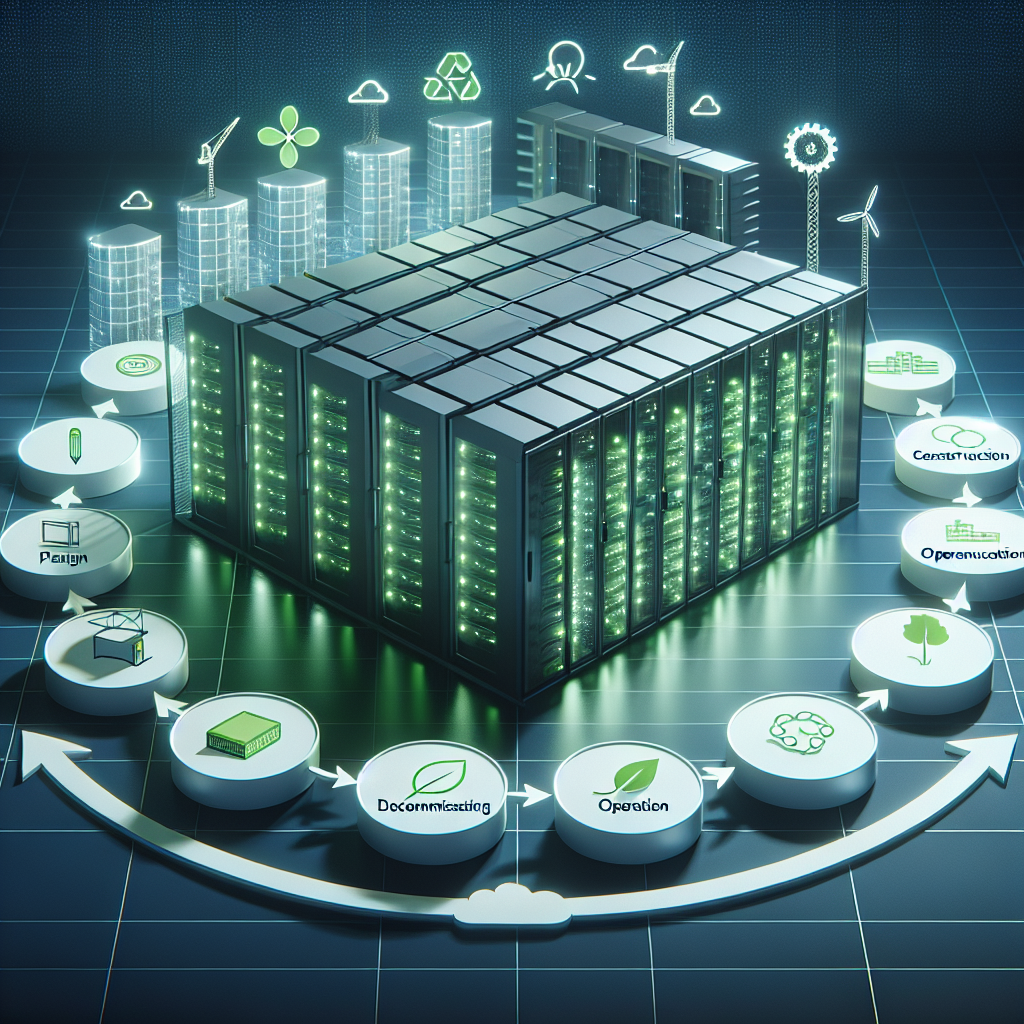Data centers play a crucial role in the digital age, serving as the backbone of the internet and storing vast amounts of data for businesses and individuals. However, the energy consumption and environmental impact of data centers have become a growing concern in recent years. In response to this, many data center operators are adopting sustainable practices in their lifecycle management to reduce their carbon footprint and minimize their environmental impact.
One of the key areas where data centers can implement sustainable practices is in their design and construction phase. By incorporating energy-efficient technologies, such as advanced cooling systems and efficient power distribution systems, data centers can significantly reduce their energy consumption and carbon emissions. Additionally, using renewable energy sources, such as solar panels or wind turbines, can further reduce the environmental impact of data centers.
In the operation and maintenance phase, data centers can implement practices such as virtualization and consolidation to optimize their server utilization and reduce the overall energy consumption of the facility. By consolidating servers and storage devices, data centers can reduce their physical footprint and energy usage, while also improving their overall efficiency and performance.
Another important aspect of sustainable data center management is the recycling and disposal of electronic waste. Data centers generate a significant amount of electronic waste, including outdated servers, networking equipment, and other hardware. By implementing proper recycling and disposal practices, data centers can reduce their environmental impact and ensure that their electronic waste is handled in a responsible and environmentally friendly manner.
Furthermore, data centers can also implement sustainable practices in their procurement and supply chain management. By sourcing hardware and equipment from environmentally conscious suppliers, data centers can ensure that their operations are aligned with their sustainability goals. Additionally, implementing energy-efficient procurement practices, such as purchasing energy-star rated equipment and appliances, can further reduce the environmental impact of data centers.
Overall, sustainable practices in data center lifecycle management are essential for reducing the environmental impact of data centers and ensuring a more sustainable future for the industry. By incorporating energy-efficient technologies, optimizing server utilization, and implementing responsible recycling practices, data centers can significantly reduce their carbon footprint and contribute to a more sustainable digital infrastructure. As the demand for data centers continues to grow, it is imperative that operators prioritize sustainability in their operations to minimize their environmental impact and create a more sustainable future for the industry.


Leave a Reply